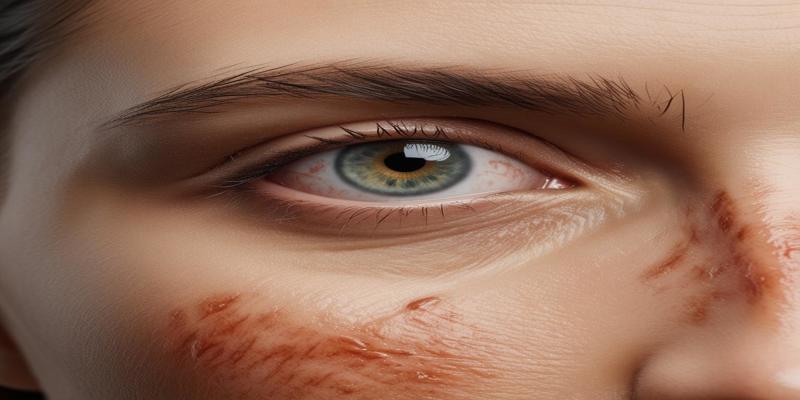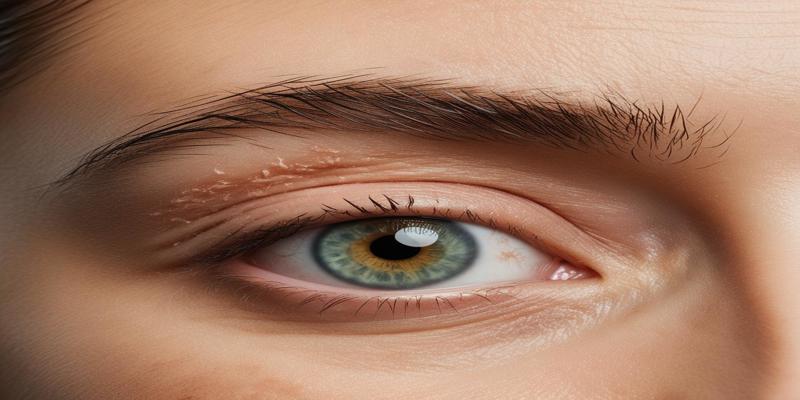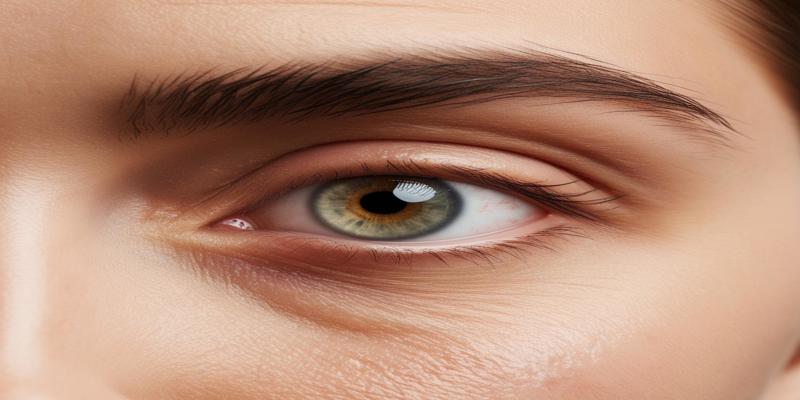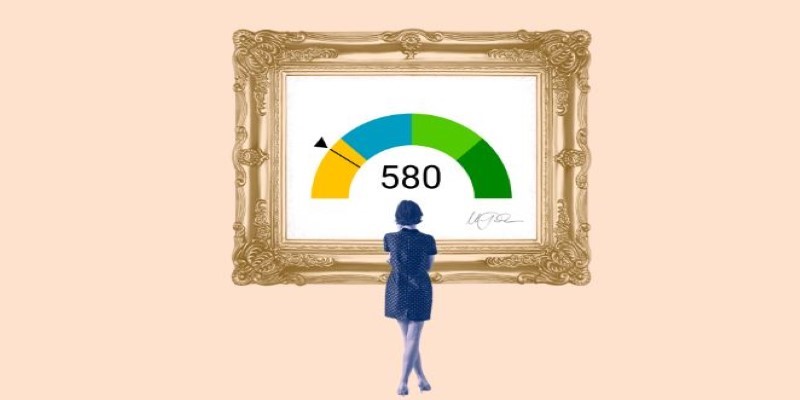Advertisement
Eye irritation can be irritating and unsettling, interfering with daily activities. Whether you have redness, itching, or excessive tearing, learning about the causes and treatments for eye irritation will help you find some relief.

Irritation in the eyes may be caused by everything from environmental factors to diseases of the body. Understanding these common causes is essential for treatment and prevention.
Dust, pollen, and pet dander are usual suspects in eye irritation. These minute particles quickly fly into your eyes, making them very uncomfortable and red. Another severe eye irritant is smoke from cigarettes or wildfires. This severely irritates the eyes. Strong winds can also contribute to eye discomfort by reducing tear production and making the eye surface dry.
Prolonged screen time is one of the significant causes of eye irritation in this digital era. Prolonged use of computers, smartphones, or tablets can cause digital eye strain, also known as computer vision syndrome. This usually leads to dry, tired, and irritated eyes.
Seasonal allergies are a common cause of eye irritation, with symptoms including itching, redness, and watering. Conjunctivitis, or pink eye, is another frequent source of eye discomfort. This infection can be caused by viruses, bacteria, or allergies and leads to redness, itching, and discharge.
Poor lens care or wearing too long can lead to irritated eyes in contact lens wearers. Adverse conditions of lenses may directly transfer irritants onto the surface of an eye with possible discomfort and complications that would require further medical attention.
Allergies are the usual suspects in causing eye irritation, and millions of people around the world suffer from their painful effects. When an allergen such as pollen, dander, or dust mites enters your eyes, it can stimulate an immune response and bring on several irritating symptoms.
Allergic eye reactions often manifest as:
These symptoms can be very light or severe, interfering with one's ability to go about routine activities and generally diminishing quality of life.
The range of treatments for allergy-induced eye irritation is effective in affording relief:
Rubbing your eyes is important to avoid, as it may exacerbate symptoms and introduce harmful bacteria. If you wear contact lenses, you should use glasses to minimize irritation when your allergies are acting up.

Allergies are a common cause of eye irritation, but several other conditions may be the culprit. Knowing these possible causes can help you better identify and treat the underlying cause.
Dry eye occurs when your eyes don't produce enough tears or when tears evaporate too quickly. This condition can cause a gritty sensation, redness, and discomfort. Factors like aging, certain medications, and prolonged screen time can contribute to dry eye syndrome.
This eyelid inflammation may cause redness, itchiness, and a sensation of grit in your eyes. The most common causes of blepharitis are an overgrowth of bacteria along the eyelids and problems with the oil glands near your eyelashes.
Also called "pink eye," conjunctivitis is inflammation of the thin, clear tissue covering the white part of your eye. Viruses, bacteria, or allergens can cause it, making your eyes red, itchy, and sometimes discharge.
Smoke, dust, wind, or chemical fumes can irritate your eyes. Even prolonged contact lens wear or exposure to chlorinated pool water can make your eyes feel gritty and red.
The moment your eyes get irritated, often all you want is relief. Following are a few better approaches that will help in soothing and relieving your eyes from irritation:
Place a cool, moist cloth over your closed eyes and leave it for 5-10 minutes. This will help lessen the inflammation and give relief instantly. If that gives more comfort, you may refrigerate the cloth to make it cooler.
Over-the-counter artificial tears may soothe dry, irritated eyes. If you use them more than once a day, select preservative-free formulas. Follow instructions for use; generally, put 1-2 drops into each eye several times daily.
Avoid rubbing your eyes, which can aggravate irritation and lead to infection. Gently blot away excess tears with a clean tissue.
Minimize exposure to irritants by:
While occasional eye irritation is joint, specific symptoms warrant immediate medical attention. Knowing when to consult a healthcare professional can help prevent complications and ensure proper treatment.
Other symptoms that may need the doctor's attention include persistent redness, pain, and discomfort lasting more than a few days. Severe symptoms, such as intense burning, itching, or the feeling that something is inside your eye, should not be ignored. These are signs that a severe underlying condition could be at play.
Any sudden changes in vision, such as blurriness, double vision, or loss of peripheral vision, require immediate medical evaluation. These could be symptoms of a more serious eye condition that immediately needs attention.
Excessive tearing, thick discharge, or any swelling of the area around the eyes is a warning sign. The infection or allergic reaction may need treatment with prescription medication for such symptoms.
If you experience continued squinting or pain from light, it is essential to speak with a medical professional. This symptom may relate to several eye conditions, ranging from minor irritations to severe diseases such as uveitis or corneal abrasions.
In conclusion, understanding the various causes of eye irritation and knowing how to address them can significantly improve your quality of life. Whether you're dealing with allergies, environmental factors, or underlying health conditions, prompt attention and appropriate treatment are key.
Advertisement

By Maurice Oliver/Mar 18, 2025

By Nancy Miller/Mar 18, 2025

By Darnell Malan/Feb 28, 2025

By Jennifer Redmond/Dec 13, 2024

By Sean William/Dec 15, 2024

By Madison Evans/Mar 18, 2025

By Madison Evans/Jan 20, 2025

By Sean William/Jan 11, 2025

By Maurice Oliver/Nov 06, 2024

By Paula Miller/Mar 01, 2025

By Pamela Andrew/Mar 17, 2025

By Susan Kelly/Feb 28, 2025